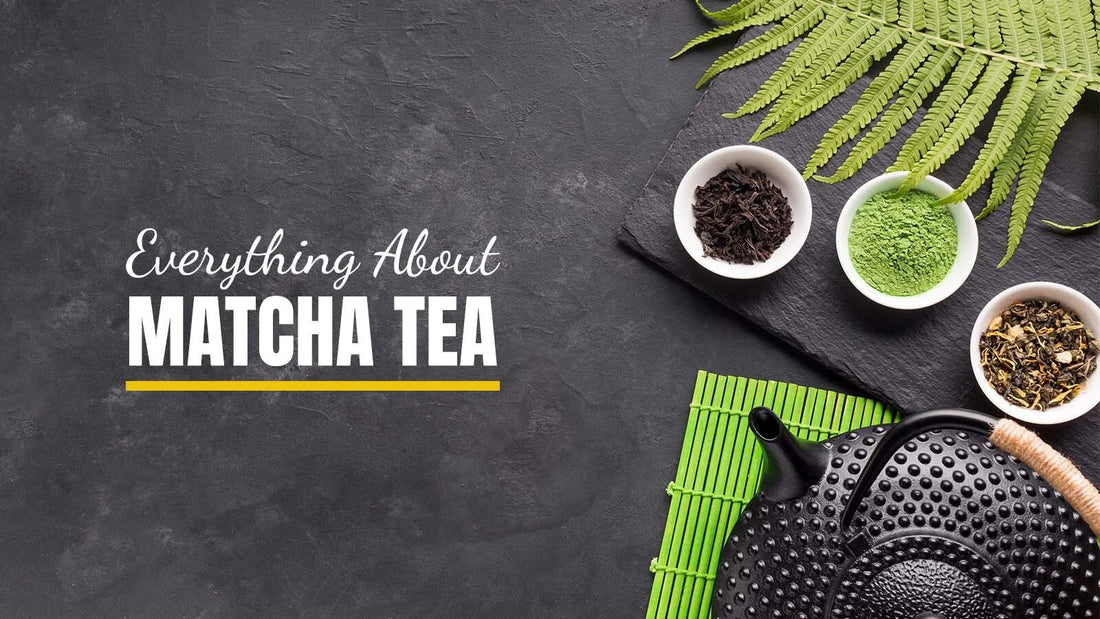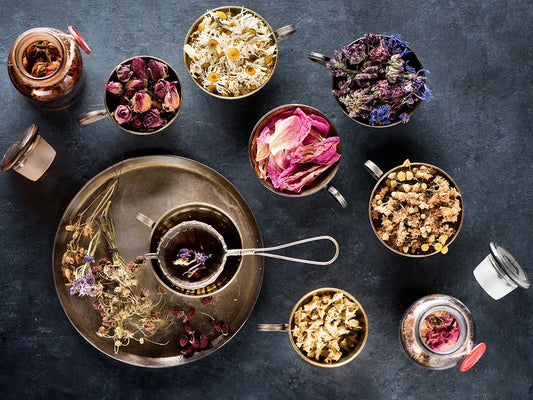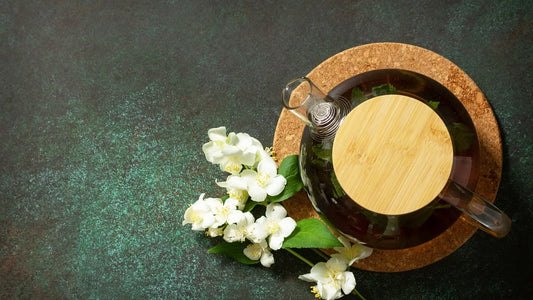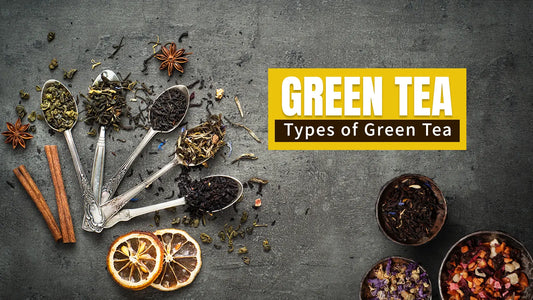Matcha Teas: Everything You Need to Know

Did you know that matcha is 137 times more rich in antioxidants compared to green tea?
Whether you savor matcha as a traditional tea or a tasty dessert, matcha’s nutritional facts can have a wide range of health benefits
In this guide, we will discover everything about matcha tea including its history, grades, nutritional facts, advantages, and applications. So, keep reading!
What is matcha tea?
Matcha Tea is the processed young green tea leaves ground into fine powder. So, unlike other green teas, where the leaves are infused and discarded, you will consume the whole tea leaf in the powdered form.
Matcha teas are specially grown in shades and undergo unique cultivation and preparation. Normally, matcha tea has a very creamy, umami, smooth, grassy, and lightly bitter taste profile. However, the flavor could vary according to the grade you pick.
History of Matcha Tea
Originally, during the Tang Dynasty period in China, people used to grind the steamed and dried green tea leaves into powder. They mixed the powder with water and drank it on special religious occasions.
Later, when a Zen monk named Eisai discovered the benefits of matcha, he introduced it to Japan. Today, this tea has been a cultural staple in Japanese tea. In Zen practices, matcha also signifies harmony and mindfulness.
Best Time to Drink Matcha Green Tea
There is no such thing as the best time to drink matcha green tea. You could drink it in the morning, afternoon, or evening.
While some people may drink matcha prior to a workout, others may sip it in the morning.
However, since matcha has a high caffeine content, it might not be suitable to drink in the late evening or on an empty stomach. Nonetheless, it all depends on your caffeine tolerance level.
Matcha Green Tea Grades
The nutritional contents, taste, aroma, and price of green tea depend on the grade. There are three different matcha types graded based on their quality. Let’s quickly deep dive into it.
Ceremonial Grade Matcha
Ceremonial Matcha is the highest-quality grade which is made by stone grinding the youngest and first-harvested tea leaves. It has a dark vibrant green color and a smooth texture.
Ceremonial matcha has a very delicate, smooth taste profile with a touch of natural sweetness. This most expensive matcha tea has a very grassy aroma.
As the name implies, this matcha is mainly used for Japanese tea ceremonies. However, anyone can savor this drink whenever they want.
Premium Grade Matcha
Next, premium grade matcha is the second top-quality grade, prepared with a mixture of first and second-harvest leaves. Compared to the ceremonial grade, the leaves are older and the tea powder is full green.
Premium-grade matcha tea is relatively cheaper than top grades. This matcha gives off a silky smooth mouthfeel, a creamy, and balanced taste of sweetness. You could serve it as classic match tea or blended drinks like matcha lattes.
Culinary Grade Matcha
Matcha of the culinary grade is the third grade, produced from fully grown leaves. The matcha is greenish-yellow in color and tastes bitter, astringent, and stronger.
Unlike the other grades, culinary matcha has a more grainy texture. It’s the cheapest matcha tea and rather used for other recipes like cooking, baking, desserts, or blending drinks.

Nutritional Facts of Matcha Tea
Matcha tea is abundant in nutritional properties. In 2 tablespoons (1.39 grams) of green tea, you could find the following nutrients.
Protein: 1 gram
Calcium: 10 mg
Energy: 15 kcal
Caffeine: 18.9 - 44.4 mg
Calorie: 5 kcal

How to prepare Matcha Tea?
Traditionally, matcha tea is prepared simply by blending the powder and water.
You’ll need
- Matcha bowl
- Bamboo whisk
- Bamboo scoop or teaspoon
- Kettle or saucepan
- Sieve
- 1-2 grams of matcha powder
- 2-3 ounces of water
Instructions
- First of all, pour the water into your kettle or saucepan and boil it.
- Now, let the boiled water cool down for around 5-7 minutes to get a water temperature of (170° - 185° Fahrenheit).
- Measure the matcha tea using a bamboo scoop or teaspoon.
- Take a sieve and pour the matcha powder into your bowl. It’ll make sure there’s no clumps.
- Now, pour the hot water into the bowl that contains matcha powder.
- Take the bamboo whisk and start whisking the mixture. You may use the M or W pattern to blend.
- Whisk your tea until you see a frothy layer formed on the surface.
- Now, put the whisker aside and take small sips to savor your matcha tea.
Note: Avoid preparing your matcha with boiling water as the taste could get bitter.
Apart from the authentic matcha brew, you could also prepare several recipes using matcha powder.
Matcha vs Black Tea Caffeine
As matcha is processed using entire green tea leaves, it has higher caffeine than steeped black tea. Matcha may have 18.9 - 44.4 mg of caffeine whereas black tea could have 14.3 - 34.8 mg per gram.

Benefits of Matcha Tea
Improves Cognitive Function
As matcha is rich in caffeine and theanine, it may help to boost your cognitive function. Researchers have found that drinking matcha tea might improve memory by minimizing stress and anxiety.
Enhances Fat Burning
Matcha’s catechin content may help to boost fat oxidation and thermogenesis. Ultimately, this might directly enhance fat burning, resulting in weight loss.
Detoxifies Body
Green tea contains a high concentration of catechins that have the ability to neutralize free radicals and boost detoxification enzymes. Studies have reported that there are more antioxidants in catechins compared to flavonoids or vitamin C. So, matcha may help to detoxify your body.
Liver Protection
One study found that the hypolipidemic effect in matcha might be helpful in improving HFD-induced hepatitis and lipid metabolism. Thus, as the antioxidant properties of matcha could have a positive impact on the gut-liver axis, it may aid in live protection.
Improve Cognitive Function
Matcha has a high amount of caffeine and L-theanine components. These compositions may help to boost attention and memory, enhancing your cognitive function.
Other Applications of Matcha Tea
The benefits of matcha aren’t just limited to human health. Several beauty companies have developed skincare products with matcha extracts as it has potential skin benefits.
For example, match-infused face masks, cleansers, moisturizers, scrubs, serums, etc. Some people may even use matcha powder as a DIY face mask.
Here are the potential benefits of matcha for your skin.
- There’s an antimicrobial property in matcha that might help get rid of bacteria that are causing acne on your skin.
- Matcha’s natural anti-inflammatory component could soothe redness or irritation in your skin.
- Since matcha is rich in vitamin C and antioxidants, it might help to boost radiance and luminosity in the skin.
- Matcha has chlorophyll that could enhance detoxifying and purifying your skin.

Matcha Tea FAQs
What does matcha milk tea taste like?
The taste of matcha milk tea is very rich, earthy, grassy, creamy, and slightly bitter. If you add sweeteners to your matcha milk tea, the taste could vary from light to quite sweet.
What is the difference between green tea and matcha?
Although both are tea, the main difference between green tea and matcha is the processing method. The green tea leaves are usually steamed or dried. However, in matcha tea, the green tea leaves are grounded and converted into fine powders.
Does matcha or chai have more caffeine?
A cup of matcha contains more caffeine content than a cup of chai.
How to make matcha green tea without a whisk?
If you do not have a whisk to prepare matcha green tea, you could opt for other alternatives like a milk frother, spoon, fork, or blender.
Can you drink matcha green tea during pregnancy?
Although matcha has several nutritional values and potential health benefits, the effect might not be the same for all as it still contains caffeine. So, to be on the safe side, we recommend you to seek professional guidance from your doctor on whether you could drink matcha green tea during pregnancy or not.

Conclusion
Now that you’ve learned everything about matcha tea, are you excited to try it out?
Be it for the benefits or the delightful taste, matcha tea could be worth well incorporating into your daily life. Once you savor matcha, we would love to know your experience.








